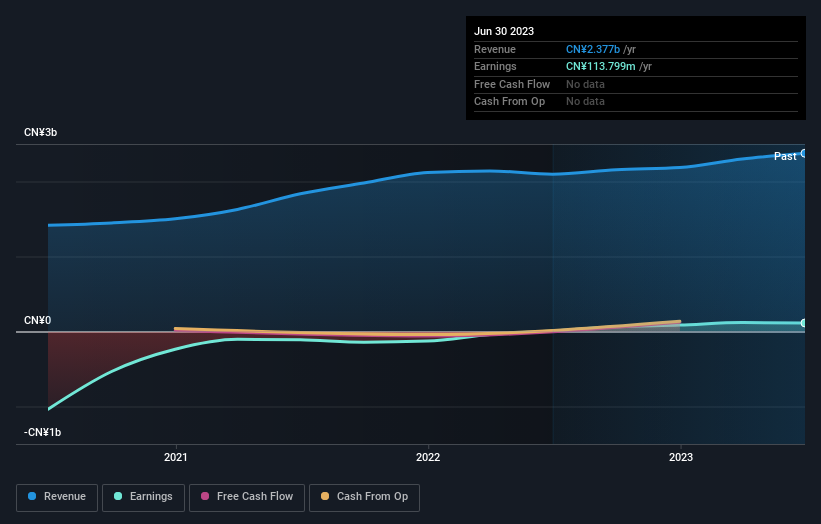Lizhi Inc. (NASDAQ:LIZI) surges 838%; individual investors who own 56% shares profited along with insiders
Key Insights
Lizhi's significant individual investors ownership suggests that the key decisions are influenced by shareholders from the larger public
44% of the business is held by the top 20 shareholders
To get a sense of who is truly in control of Lizhi Inc. (NASDAQ:LIZI), it is important to understand the ownership structure of the business. The group holding the most number of shares in the company, around 56% to be precise, is individual investors. In other words, the group stands to gain the most (or lose the most) from their investment into the company.
While individual investors were the group that reaped the most benefits after last week’s 838% price gain, insiders also received a 22% cut.
In the chart below, we zoom in on the different ownership groups of Lizhi.
View our latest analysis for Lizhi
What Does The Institutional Ownership Tell Us About Lizhi?
Institutional investors commonly compare their own returns to the returns of a commonly followed index. So they generally do consider buying larger companies that are included in the relevant benchmark index.
Institutions have a very small stake in Lizhi. That indicates that the company is on the radar of some funds, but it isn't particularly popular with professional investors at the moment. If the business gets stronger from here, we could see a situation where more institutions are keen to buy. It is not uncommon to see a big share price rise if multiple institutional investors are trying to buy into a stock at the same time. So check out the historic earnings trajectory, below, but keep in mind it's the future that counts most.
We note that hedge funds don't have a meaningful investment in Lizhi. Looking at our data, we can see that the largest shareholder is the CEO Jinnan Lai with 18% of shares outstanding. With 15% and 5.8% of the shares outstanding respectively, Jingwei Venture Capital (Beijing) Investment Management Consulting Co., Ltd. and 5Y Capital are the second and third largest shareholders.
A deeper look at our ownership data shows that the top 20 shareholders collectively hold less than half of the register, suggesting a large group of small holders where no single shareholder has a majority.
While studying institutional ownership for a company can add value to your research, it is also a good practice to research analyst recommendations to get a deeper understand of a stock's expected performance. We're not picking up on any analyst coverage of the stock at the moment, so the company is unlikely to be widely held.
Insider Ownership Of Lizhi
While the precise definition of an insider can be subjective, almost everyone considers board members to be insiders. Company management run the business, but the CEO will answer to the board, even if he or she is a member of it.
Insider ownership is positive when it signals leadership are thinking like the true owners of the company. However, high insider ownership can also give immense power to a small group within the company. This can be negative in some circumstances.
Our information suggests that insiders maintain a significant holding in Lizhi Inc.. Insiders own US$502m worth of shares in the US$2.3b company. That's quite meaningful. Most would be pleased to see the board is investing alongside them. You may wish to access this free chart showing recent trading by insiders.
General Public Ownership
The general public, mostly comprising of individual investors, collectively holds 56% of Lizhi shares. This size of ownership gives investors from the general public some collective power. They can and probably do influence decisions on executive compensation, dividend policies and proposed business acquisitions.
Private Equity Ownership
With an ownership of 20%, private equity firms are in a position to play a role in shaping corporate strategy with a focus on value creation. Some investors might be encouraged by this, since private equity are sometimes able to encourage strategies that help the market see the value in the company. Alternatively, those holders might be exiting the investment after taking it public.
Next Steps:
While it is well worth considering the different groups that own a company, there are other factors that are even more important. Case in point: We've spotted 2 warning signs for Lizhi you should be aware of, and 1 of them is significant.
Of course this may not be the best stock to buy. So take a peek at this free free list of interesting companies.
NB: Figures in this article are calculated using data from the last twelve months, which refer to the 12-month period ending on the last date of the month the financial statement is dated. This may not be consistent with full year annual report figures.
Have feedback on this article? Concerned about the content? Get in touch with us directly. Alternatively, email editorial-team (at) simplywallst.com.
This article by Simply Wall St is general in nature. We provide commentary based on historical data and analyst forecasts only using an unbiased methodology and our articles are not intended to be financial advice. It does not constitute a recommendation to buy or sell any stock, and does not take account of your objectives, or your financial situation. We aim to bring you long-term focused analysis driven by fundamental data. Note that our analysis may not factor in the latest price-sensitive company announcements or qualitative material. Simply Wall St has no position in any stocks mentioned.


